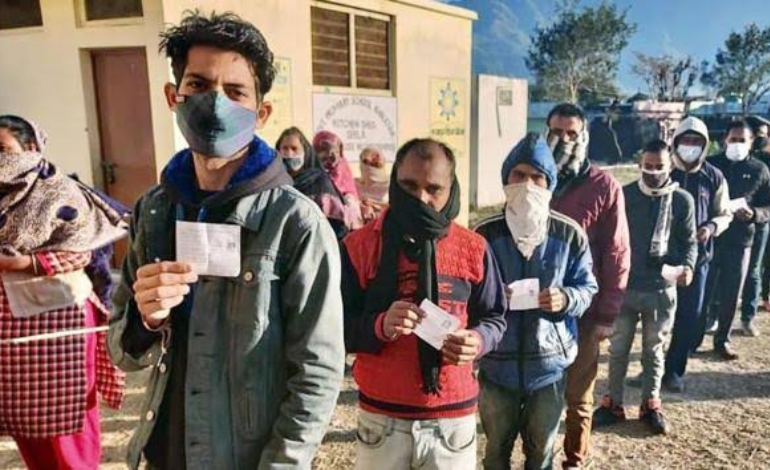
New Delhi, Dec 10: Elections in Jammu and Kashmir may be held next year when winter conditions subside, according to sources, and the schedule will depend on the security situation in the union territory.
On November 25, the final electoral roll of Jammu and Kashmir was issued, setting the way for the first elections since Article 370 provisions were repealed and J&K was divided into two Union territories in 2019. However, with winter approaching, the elections might be held in the summer of 2023, bearing the current security situation in mind, according to the sources.Because of the difficult winter weather, poll officials may be forced to hold the election.
According to the reports, the poll officials would base their decision on two factors: weather and security.Due to the geography and security situation, holding elections in Jammu and Kashmir necessitates a large logistical exercise, with hundreds of men from central armed police forces being sent to maintain peace and free and fair elections.The election rolls were revised after a roughly three-year hiatus. It was last performed using January 1, 2019 as the qualifying date.
The election rolls could not be updated following the repeal of Article 370 requirements. Following a delimitation process, the constituencies were later reconfigured.
The number of assembly seats increased from 83 to 90 after delimitation, excluding seats given to Pakistan-occupied Kashmir.According to authorities, the final electoral registers of Jammu and Kashmir were issued on November 25 with the highest-ever inclusion of more than 11 lakh voters.Taking into consideration the deletion of names from the electoral records, they reported a net rise of 7,72,872 electors.
The final electoral rolls include 83,59,771 electors: 42,91,687 men, 40,67,900 females, and 184 third-gender voters.During this special summary revision period, a total of 11,40,768 claims for inclusion of names in electoral rolls across the Union territory were received.
Only 12,096 claims were denied out of the total of 11,28,672 claims. These were 3,01,961 claims for inclusion in the 18-19 age group.A total of 4,12,157 deletion requests were submitted, with 3,58,222 granted and 53,935 denied.In the Union territory, 613 additional voting stations have been added.The final electoral Roll's gender ratio has risen from 921 to 948.